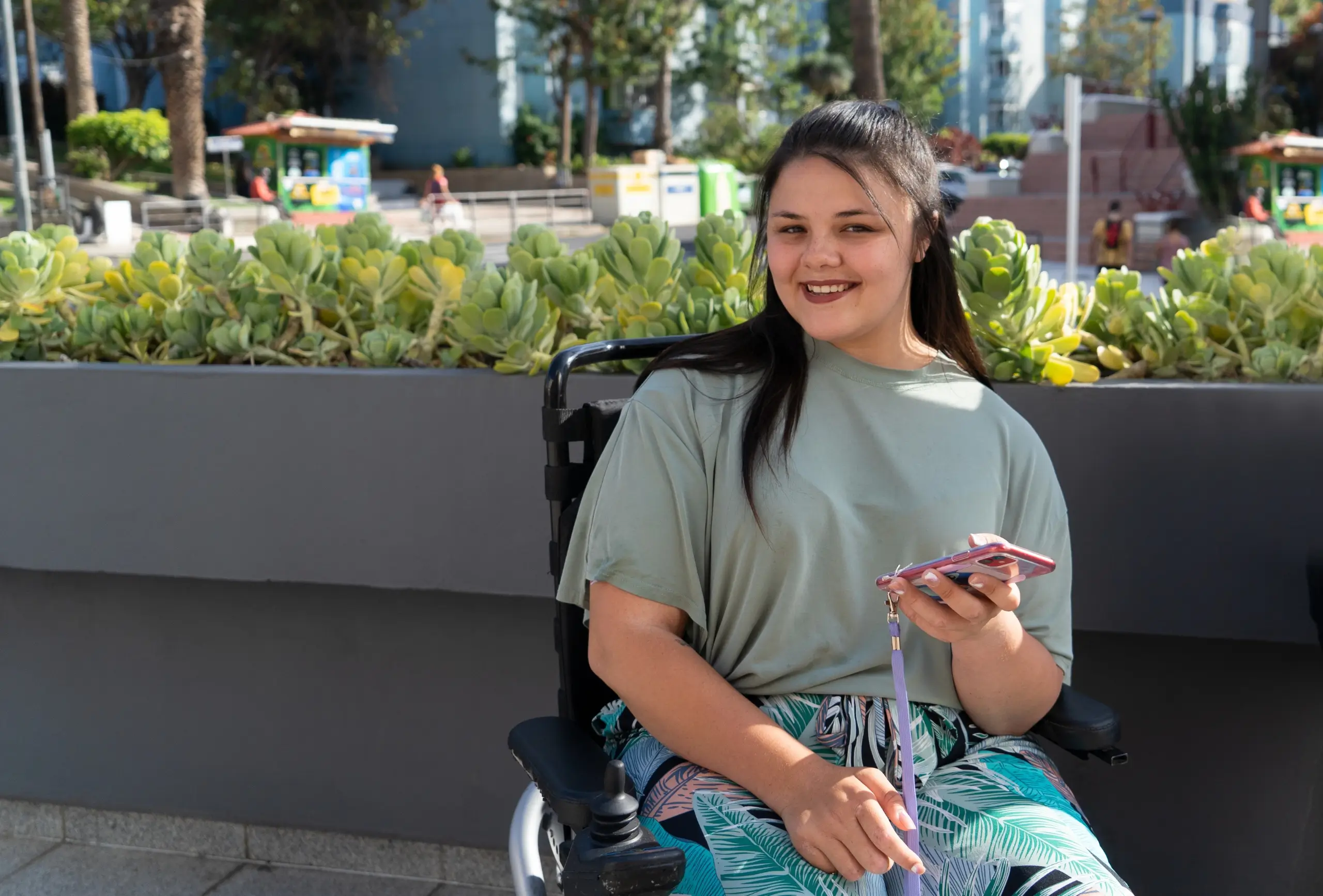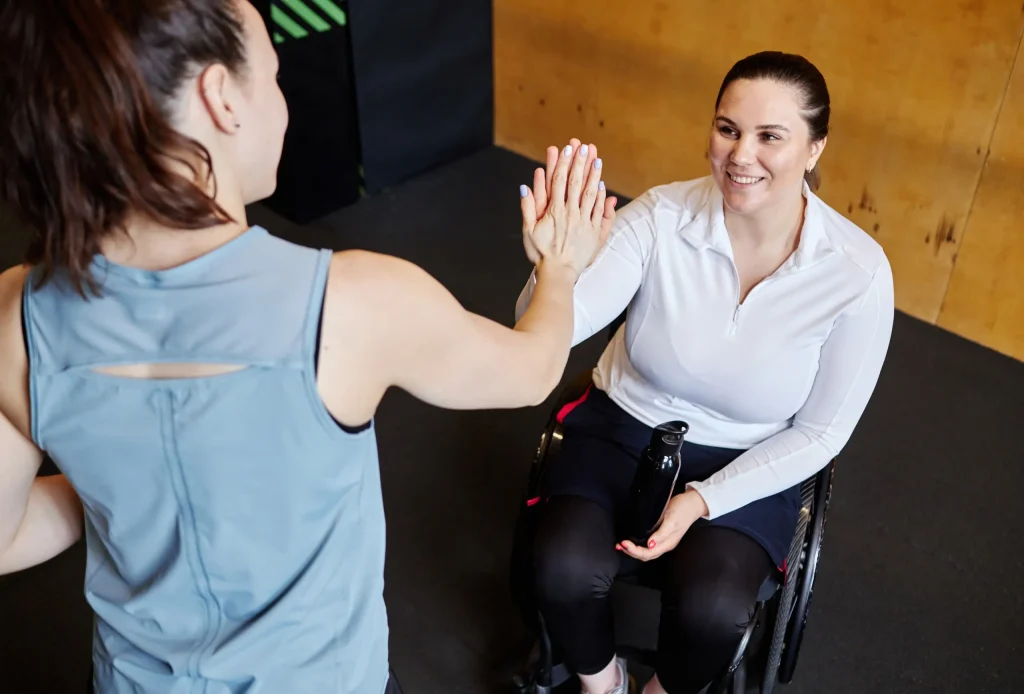When Care Becomes Healthcare
The call came at 3 PM on a Friday—a support worker, panic in her voice, describing concerning changes in her client’s behaviour. Sarah, a woman with intellectual disability and diabetes, had been “acting strange” all week. The support worker had noticed increased confusion, unusual fatigue, and mood changes, but her previous provider had dismissed these as “just having a bad week.”
As experienced nurses, we immediately recognised the potential signs of diabetic complications. Within hours, Sarah was in hospital receiving treatment for dangerously high blood sugar levels that could have led to a medical emergency. The difference between a good outcome and a devastating one? Clinical expertise recognising that behaviour changes in disability settings often signal underlying health issues.
This incident illustrates a critical truth about modern quality disability care services: they must be fundamentally grounded in clinical understanding. The days of separating “disability support” from “healthcare” are over—today’s participants live with complex medical conditions that require clinical insight, health monitoring, and medical coordination as standard components of quality care.
At Ultima Care, our nursing backgrounds have shown us that quality disability care services aren’t just about assistance with daily living—they’re about clinical oversight, health advocacy, and medical integration that keeps people safe, healthy, and thriving in their communities.
The Medical Reality of Modern Disability Care
Let’s address what the disability sector sometimes prefers not to discuss: most NDIS participants live with significant healthcare needs that directly impact their daily support requirements.
Complex Conditions Requiring Clinical Oversight
Today’s disability care services support people with:
- Multiple chronic conditions requiring ongoing monitoring and management
- Complex medication regimes with potential interactions and side effects
- Progressive conditions where early intervention can slow decline
- Mental health comorbidities that affect behaviour and engagement
- Acquired injuries with rehabilitation potential that requires clinical expertise
These aren’t occasional complications—they’re the daily reality of modern disability support.
Health Monitoring and Emergency Recognition
Quality care providers must be equipped to:
- Recognise early signs of health deterioration or medical emergencies
- Understand medication effects and identify adverse reactions
- Monitor vital signs and other health indicators appropriately
- Coordinate with healthcare teams for ongoing medical management
- Implement clinical protocols for specific conditions and treatments
Without this clinical foundation, care providers are essentially operating blind to critical health information.
Integration with Medical Treatments and Therapies
Effective quality disability care services must seamlessly integrate with:
- Specialist medical appointments and treatment recommendations
- Allied health therapies and rehabilitation programmes
- Hospital discharge planning and community transition protocols
- Equipment needs and assistive technology requirements
- Mental health treatment and psychological support strategies
This integration requires clinical understanding, not just administrative coordination.
What “Quality” Actually Means in Disability Care Services
The term “quality” gets used frequently in disability care marketing, but what does it actually mean when applied to quality disability care services?
Clinical Competency vs. Basic Care Training
True quality means clinical competency that goes far beyond basic certificate training:
- Medical knowledge relevant to participants’ specific conditions
- Health assessment skills to monitor changes and trends
- Emergency response capabilities based on clinical training
- Medication management understanding including contraindications and side effects
- Communication skills for effective healthcare team interaction
Many providers meet minimum training requirements but lack the clinical depth needed for complex care scenarios.
Health Outcome Tracking and Management
Quality providers focus on measurable health outcomes, not just activity completion:
- Baseline health assessments to establish individual norms
- Regular health monitoring with documented trends and changes
- Goal setting that includes health and wellbeing objectives
- Outcome measurement that tracks both disability goals and health status
- Preventive care strategies that reduce emergency interventions
This outcome focus requires clinical training and health system understanding.
Medical Emergency Preparedness
Quality disability care services include comprehensive emergency preparedness:
- Detailed emergency protocols specific to each participant’s conditions
- Clinical training for recognising and responding to medical emergencies
- Equipment and medication management during crisis situations
- Healthcare system navigation for emergency department interactions
- Family communication protocols during medical emergencies
This level of preparedness requires clinical expertise, not just first aid training.
The Five Clinical Standards of Excellence
Based on our nursing experience, we’ve identified five clinical standards that distinguish exceptional quality disability care services:
1. Medical Knowledge and Understanding
Exceptional providers demonstrate:
- Condition-specific expertise relevant to participants they support
- Understanding of disease progression and potential complications
- Medication knowledge including side effects and interactions
- Recognition of health changes that require medical attention
- Integration of medical recommendations into daily support practices
Ask potential providers: “How do you ensure staff understand the medical aspects of the conditions you support?”
2. Comprehensive Health Monitoring
Quality providers implement:
- Regular health assessments using clinical tools and observation
- Vital sign monitoring when clinically indicated
- Behaviour tracking that recognises health-related changes
- Symptom documentation with clinical accuracy and detail
- Trend analysis to identify patterns requiring intervention
Look for providers who can explain their health monitoring protocols and documentation systems.
3. Clinical Emergency Response
Exceptional services include:
- Immediate response protocols for medical emergencies
- Clinical assessment capabilities to determine intervention needs
- Emergency equipment appropriate to participants’ conditions
- Healthcare communication during crisis situations
- Follow-up protocols after emergency interventions
Ensure providers can demonstrate their emergency response capabilities and training.
4. Healthcare Team Coordination
Quality providers excel at:
- Direct communication with medical professionals
- Implementation of medical recommendations in community settings
- Advocacy for participants within healthcare systems
- Care transition support between hospital and community
- Medical appointment coordination and attendance support
Evaluate how providers interact with your existing healthcare team.
5. Family Clinical Support and Education
Outstanding providers offer:
- Clinical education for family members about conditions and care
- Health status communication in understandable terms
- Emergency training for families and caregivers
- Medical appointment support and interpretation assistance
- Resources and connections to relevant health information and support
Consider how providers support your family’s understanding and involvement in health management.
Warning Signs of Substandard Care Services
Be alert to these red flags that indicate quality disability care services may be lacking:
| Warning Sign | What It Reveals | Potential Consequences |
|---|---|---|
| Avoids medical discussions | Limited clinical understanding | Missed health issues and emergencies |
| Generic care approaches | Lack of condition-specific knowledge | Inappropriate care that doesn’t meet medical needs |
| Poor communication with healthcare providers | Inability to integrate medical care | Fragmented care and missed opportunities |
| No health monitoring protocols | Focus on tasks rather than wellbeing | Undetected health changes and complications |
| Dismisses health concerns | Lack of clinical training or confidence | Delayed medical intervention and worsened outcomes |
| High staff turnover in clinical roles | Poor clinical supervision or support | Inconsistent health monitoring and emergency response |
| Reluctance to discuss emergency protocols | Inadequate emergency preparedness | Dangerous gaps in crisis response capabilities |
Trust your instincts about clinical competency. If providers seem uncomfortable discussing health matters or dismiss medical concerns, they may lack the clinical standards needed for quality care.
How Clinical Training Transforms Care Delivery
Let me share examples of how clinical expertise transforms quality disability care services:
Michael’s Medication Management: Michael, who lives with bipolar disorder and intellectual disability, was experiencing frequent mood swings that his previous provider attributed to “behavioural issues.” Our clinical assessment revealed medication timing problems and potential interactions. By coordinating with his psychiatrist and implementing proper medication protocols, we achieved mood stability that had eluded him for years.
The Wilson Family’s Emergency Preparedness: When Jenny Wilson’s daughter experienced her first seizure, their previous provider’s response was to call an ambulance and wait. Our nursing-trained staff recognised the type of seizure, implemented appropriate immediate care, documented details needed for medical assessment, and provided the family with education about seizure management. This clinical response prevented unnecessary hospitalisation and equipped the family with confidence for future management.
David’s Preventive Health Success: David, a man with Down syndrome and early signs of dementia, was declining rapidly under standard care approaches. Our clinical assessment identified several preventable health issues—nutrition problems, medication compliance issues, and lack of cognitive stimulation. By addressing these clinical factors proactively, we not only stabilised his condition but actually improved his cognitive function and quality of life.
Evaluating Clinical Competency in Care Providers
When assessing potential quality disability care services, use these strategies to evaluate clinical competency:
Questions to Assess Clinical Knowledge
About Staff Qualifications:
- “What percentage of your staff have healthcare backgrounds?”
- “How do you ensure clinical competency in staff supporting people with [specific condition]?”
- “What ongoing clinical training do staff receive?”
About Health Monitoring:
- “How do you monitor participants’ health status?”
- “What protocols do you have for recognising health changes?”
- “How do you document and track health-related information?”
About Emergency Response:
- “What clinical training do your staff have for emergency situations?”
- “Can you walk me through your emergency response protocol?”
- “How do you coordinate with healthcare providers during emergencies?”
About Healthcare Integration:
- “How do you communicate with participants’ medical teams?”
- “How do you implement medical recommendations in your support delivery?”
- “What role do you play in healthcare transitions and appointments?”
Practical Assessment Strategies
Request to observe: Ask to observe staff interactions and assess their clinical awareness and professional communication.
Review documentation: Examine their health monitoring and emergency response documentation for clinical accuracy and detail.
Speak with families: Contact other families to ask specifically about the provider’s clinical competency and health management capabilities.
Test responsiveness: Present hypothetical health scenarios and evaluate their proposed responses for clinical appropriateness.
The Evolution Toward Clinical Care Standards
The quality disability care services sector is evolving toward higher clinical standards, driven by:
Recognition of Healthcare Complexity
The NDIS and broader disability sector increasingly acknowledge that:
- Disability support is inherently healthcare-related for most participants
- Clinical expertise improves safety and outcomes significantly
- Health integration is essential for quality of life
- Preventive approaches reduce costs and improve wellbeing
Industry Trends Toward Clinical Excellence
Progressive providers are implementing:
- Nursing oversight for complex care situations
- Clinical supervision for all support staff
- Health outcome measurement as standard practice
- Medical team integration protocols
- Emergency response training based on clinical standards
Future Standards and Expectations
We anticipate increased emphasis on:
- Clinical competency requirements for disability care roles
- Health outcome accountability for service providers
- Medical integration standards in service delivery
- Emergency preparedness certification based on clinical training
Demand Clinical Excellence in Your Care
After years of nursing practice in disability settings, I’m convinced that quality disability care services must be grounded in clinical excellence. The complexity of modern disability support demands providers who understand health management, recognise medical issues, and coordinate seamlessly with healthcare systems.
You deserve care providers who see you as a whole person—not just someone who needs assistance with daily tasks. You deserve clinical expertise that keeps you safe, healthy, and working toward your goals. You deserve providers who understand that quality disability care is, fundamentally, quality healthcare delivered in community settings.
The difference between adequate and exceptional care often comes down to clinical competency. When your provider understands your medical condition, monitors your health proactively, responds appropriately to emergencies, and coordinates effectively with your healthcare team, everything changes. Your safety improves. Your health outcomes improve. Your quality of life improves.
At Ultima Care, our nursing backgrounds enable us to provide quality disability care services that integrate clinical excellence with compassionate support. We understand that exceptional disability care requires both heart and clinical expertise—and we’re committed to providing both.
If you’re ready to experience disability care services that combine clinical excellence with genuine compassion, contact Ultima Care today. Let us show you how nursing-led care can transform your experience and outcomes.
Your care deserves clinical excellence. You deserve providers who understand that quality disability support is quality healthcare—delivered with expertise, compassion, and genuine commitment to your wellbeing.



